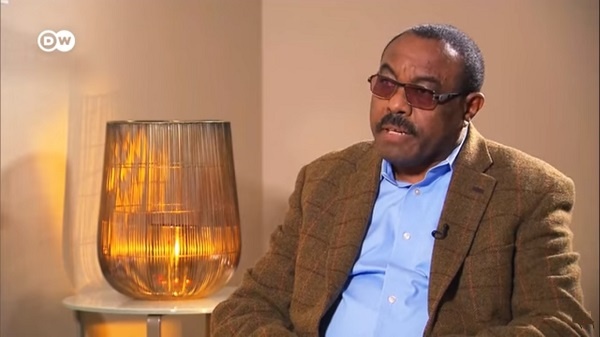
Having resigned after several years of unrest in Ethiopia, Hailemariam Desalegn, former Ethiopian Prime Minister, left behind a questionable human rights record. He tells DW’s Conflict Zone he began reforms and wasn’t aware of secret prisons.
The former Ethiopian prime minister told DW he could apologize to victims of human rights abuses in the country.
“If there is a need [to], I will,” said Hailemariam Desalegn, suggesting this could follow the conclusions of a recently established reconciliation commission, of which he is a member.
Hundreds of protesters were killed in widespread demonstrations beginning in November 2015 and many who were arrested reported being tortured. Opposition politicians were also charged under counterterrorism laws and the government declared a state of emergency in October 2016 that lasted 10 months.
Hailemariam told DW’s top political interview show Conflict Zone that he had begun the reforms now taken up by his successor and resigned in February 2018 to make way for “deep renewal” in the country.
“I have done my share to bring this change,” he said.
When asked about the attorney general’s discovery of corruption and abuse, including alleged torture by security services at secret prisons, the former prime minister said he had initiated the investigations that had resulted in 63 arrests nine months after he left office.
“I am ashamed that this happened but I didn’t know those things and if I knew those things I would have corrected them,” he said.
‘You don’t utter a word’
Hailemariam said it was his government that admitted there had been human rights abuses and refuted Conflict Zone host Tim Sebastian’s contention that he had ignored what was really going on in the country.
The former prime minister said there were “historical issues” that had to be understood: “When there is a communist mentality and there is a Marxist mentality, there is centralism where you don’t utter a word after your party decides on issues, even though you have differences.”
Continue reading this story on DW News
